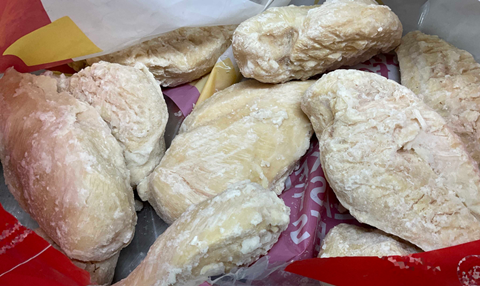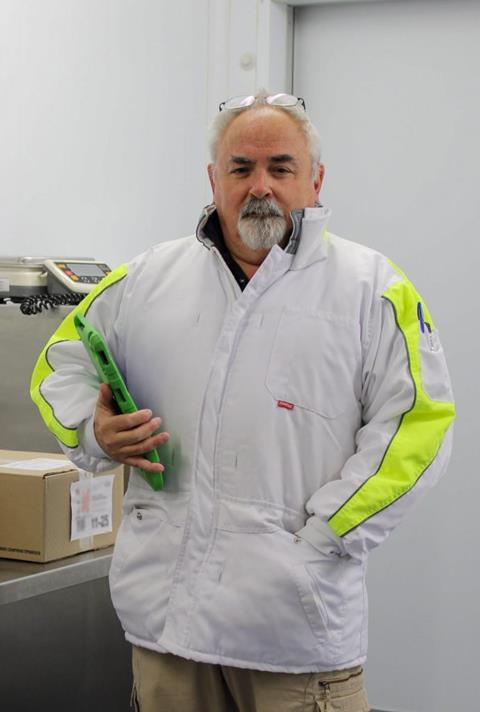Salmonella mbandaka was found in imported chicken products arriving at Felixstowe port. The products were consequently destroyed by port authorities.

Suffolk Coastal Port Health Authority (SCPHA), a part of East Suffolk Council that inspects imported food, feed and animal-origin products for health risks, discovered the mbandaka subspecies within 21,800kg of cooked chicken imported to the Port of Felixstowe before ordering its destruction.

Jose Arruga, official veterinary surgeon (OVS) at SCPHA who discovered the Salmonella, said: “Unlike raw chicken, all pre-cooked chicken must be completely devoid of Salmonella according to UK legislation, as consumers are not expected to cook it as thoroughly.
“We have therefore ordered the destruction of this consignment and increased our checks to root out any more instances of Salmonella mbandaka.”
Suspicions were aroused when SCPHA found Salmonella in a previous import of chicken from the same factory as part of routine checks, prompting intensified checks for all future imports of the product from the location in question.
Arruga sampled the factory’s next export to Felixstowe, and although no issues was found with it physically, the sample tested positive for Salmonella mbandaka after laboratory analysis.
Arruga said: “As per guidance from the Food Standards Agency (FSA), up to 30 imports of this product from the location in question must be clear of any contamination before we can resume routine checks.
“The cause could be something as simple as contaminated equipment at the factory or a wider issue.”
Robust checks are vital
According to an analysis by the European Centre for Disease Prevention and Control (ECDC) in November 2022, 196 Salmonella mbandaka infections were reported across the UK, Ireland, France, Germany, Netherlands, Finland, Estonia, Czechia and Israel.
Of the confirmed cases, 19 people were hospitalised, five of which suffered from septicaemia. In the UK 81 cases were reported, resulting in the death of one person.
Tina Potter, head of incidents at the FSA, said: “We welcome the successful interception of the consignment of infected cooked chicken, and we commend Suffolk Coastal Port Health Authority for doing so. This case highlights the importance of high-quality import checks and inspections at ports across the country.
“While Salmonella may only cause mild illness for most people, it carries a greater risk of causing severe illness for vulnerable people such as young children, the elderly, and those who are immunocompromised. The steps taken by dedicated officers at Suffolk Coastal Port Health Authority has helped keep UK consumers safe.”
BPC chief executive Richard Griffiths said “British poultry meat producers have worked hard to build a food system that people trust and value, ensuring high standards of production from farm to fork. Imported poultry must meet these standards as condition of entry. This is why robust checks at the port are vital, and it is necessary that there is sufficient resource in place to carry them out, particularly when full border control checks come into force for EU countries too.”
This story was originally published on a previous version of the Meat Management website and so there may be some missing images and formatting issues.















